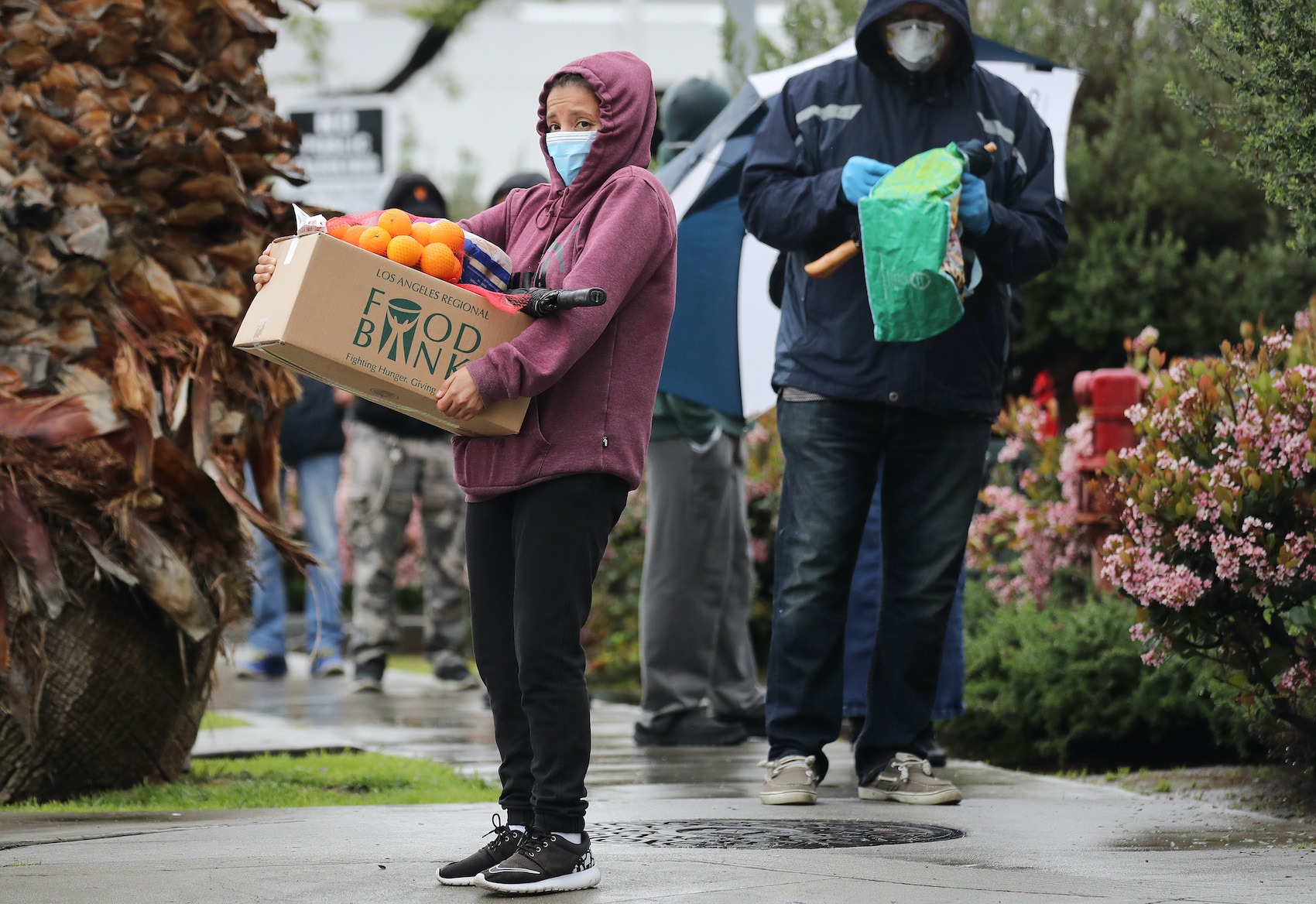Coronavirus Lays Bare The Staggering Class Inequalities That Divide America
Neither the coronavirus nor anything else is a ‘great equalizer’ because we aren’t, actually, all in this together.

This piece is a commentary, part of The Appeal’s collection of opinion and analysis.
The response to the coronavirus pandemic is a tale of two Americas: one responding to the crisis by fleeing to vacation homes in private jets, and the other scrambling to keep kids fed and rent paid. Some wonder whether or not these wide disparities, and the deeper truths about American inequality that they reveal, will spark class warfare. Let’s hope so.
The coronavirus is shattering long-standing political veneers. For years, trust in the government has consistently fallen to newer and newer historic lows. There has always been a class element to this distrust—for instance, the role of money in politics, reviled by Americans across the political spectrum. Earlier this year, the February Democratic presidential debate was described as “descending” into class warfare when billionaire candidate Mike Bloomberg was asked whether billionaires should exist. The question, referencing a controversial tweet made by opponent Senator Bernie Sanders, marked a line of inquiry that would have been unthinkable in the preceding years—even after the dramatic events of Occupy Wall Street and its violent and politically clarifying eviction (ordered by Bloomberg himself).
But the tides seem to be turning. Support for Medicare for All has surged to near record highs from a narrow majority in January. And polling by Data for Progress shows that 7 in 10 Americans support direct payments, halting evictions, and freezing rent during the COVID-19 crisis.
Skepticism of the rich and powerful seems to be spreading more widely than concerns over lobbying and electoral finance. Celebrities have been humbled for trying to connect their shelter-in-place experience with those who are neither rich nor famous, and exposed for their complicity in the systems of power that control the lives of working people. Even more promisingly, the deadly labor crisis has fueled what some label a “new labor movement,” as energized flight attendants, auto workers, and nurses extract concessions from bosses and politicians.
Some balk at talk of class, thinking of it as an alternative to talking about other topics like race and gender. To be sure, there are those who weaponize attention to this particular category of oppression in this way, as there are with any other category. But there are plenty of ways of thinking about class that take other forms of injustice seriously. To pick just a few examples: Touré F. Reed’s book Toward Freedom argues that a “public-good-oriented” political perspective that pushes for state intervention in labor and housing markets is both the right politics for the present historical moment and the right description of the political commitments of the Black labor and political activists who laid the groundwork for the civil rights movement. Philosophical theories like Cedric Robinson’s “racial capitalism” or Elisabeth Schüssler Fiorenza’s “kyriarchy” emphasize the systematic connections between kinds of domination we might talk about separately—and, more importantly, how what connects them is society itself.
From these perspectives, what we might call “class” is just as tightly bound up with the overall social structure we’re trying to change as any of the other words some people might prefer that we use. Asking whether we should frame our domination in terms of class as opposed to gender or race is rather like a person with a boot on their neck debating whether their predicament is truly about the boot, the foot inside of it, or the sock in between. Maybe we should ask different questions.
Here’s one: What actions can we craft that are directly and expressly aimed at reducing the social power of the corporate class? A moderate wealth tax of up to 3 or 8 percent, like the ones proposed by progressive senators Bernie Sanders and Elizabeth Warren, would be a worthy start. A better start would match the scale advocated by economist Thomas Piketty of up to 90 percent. Antitrust action to break up growing monopolization of our economy like big banks and big tech will help even the playing field between corporations and the rest of us.
At the same time, we need to empower the rest of the country, especially the working class. Economists Sandy Darity and Darrick Hamilton’s “baby bonds” proposal would give every American child a trust fund, which could help combat generations of economic inequality and close the racial wealth gap. A “debt jubilee” could eliminate individual and family debt, freeing up individuals to choose more fulfilling and socially beneficial work rather than high paying jobs aimed at making debt payments. A “Green Stimulus” could not only respond to this pandemic but also build the infrastructure for dealing with the next one in a way premised upon justice for Black and Indigenous communities. In particular, a green jobs guarantee could shift people from unemployment and low wage work in carbon intensive industries to well-compensated and socially meaningful work. Critically, these could all help shift the balance of power away from corporate elites and toward working people.
Not everyone will benefit from these proposals. The corporations, banks, and billionaire families that enjoy the benefits of disproportionate influence might well prefer the power dynamics in the status quo to the world that would be built by these efforts. But, from the class warfare perspective, that’s rather the point. Neither the coronavirus nor anything else is a “great equalizer” because we aren’t, actually, all in this together. The elites know this well, and behave accordingly. It’s time the rest of us do, too.
Olúfẹ́mi O. Táíwò is an assistant professor of philosophy at Georgetown University.
